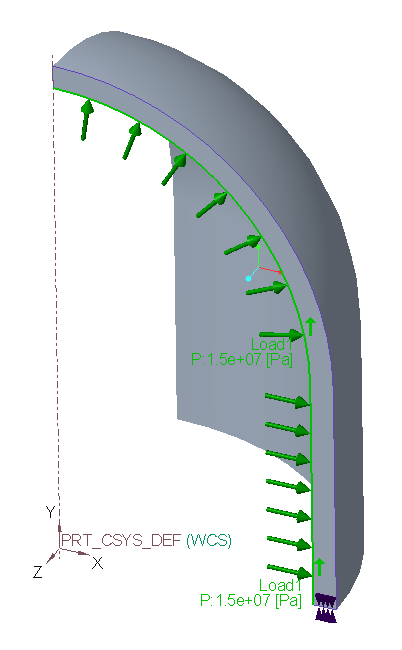ML1332 Computer-aided Mechanical Design, Continuation Course 7.5 credits

The course for computer-based engineering tools introduces students to simulation software and calculation worksheets typically used to analyze a variety of design and engineering problems.
Information per course offering
Course offerings are missing for current or upcoming semesters.
Course syllabus as PDF
Please note: all information from the Course syllabus is available on this page in an accessible format.
Course syllabus ML1332 (Autumn 2023–)Content and learning outcomes
Course contents
Intended learning outcomes
Having passed the course, the student should be able to:
- independently structure, implement and document CAx tasks that include modelling and FE analysis
- use a finite element programme to solve multidimensional elastic problems
- develop a product's geometry and function considering the FE analysis
- identify and apply appropriate modelling strategies considering FE analysis
- describe how finite element programmes are structured and which input that must given, to solve a hands-on problem
- compare, evaluate and document the results of FE analyses
Literature and preparations
Specific prerequisites
- Passed Cources ML1000, ML1101 and ML1209
- Passed modules PDX1 och PRO1 in ML1213
Literature
Examination and completion
Grading scale
Examination
- RED1 - Seminar, 2.0 credits, grading scale: A, B, C, D, E, FX, F
- DEX1 - Computer Based Examination, 2.5 credits, grading scale: A, B, C, D, E, FX, F
- INLA - Assignments, 3.0 credits, grading scale: A, B, C, D, E, FX, F
Based on recommendation from KTH’s coordinator for disabilities, the examiner will decide how to adapt an examination for students with documented disability.
The examiner may apply another examination format when re-examining individual students.
If the course is discontinued, students may request to be examined during the following two academic years.
Examiner determines, in consultation with KTH's coordinator for disabilities (Work), about possible adapted examination for students with documented, permanent disabilities. The examiner may permit other examination format for re-examination of individual students.
Examiner
Ethical approach
- All members of a group are responsible for the group's work.
- In any assessment, every student shall honestly disclose any help received and sources used.
- In an oral assessment, every student shall be able to present and answer questions about the entire assignment and solution.